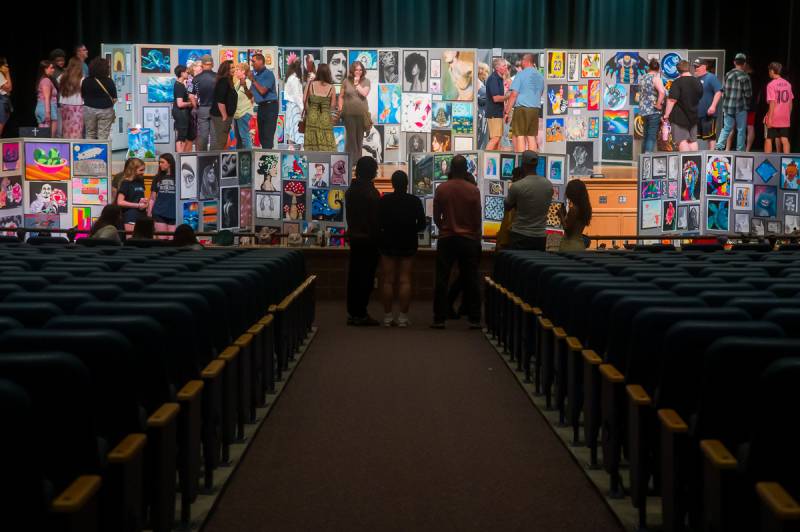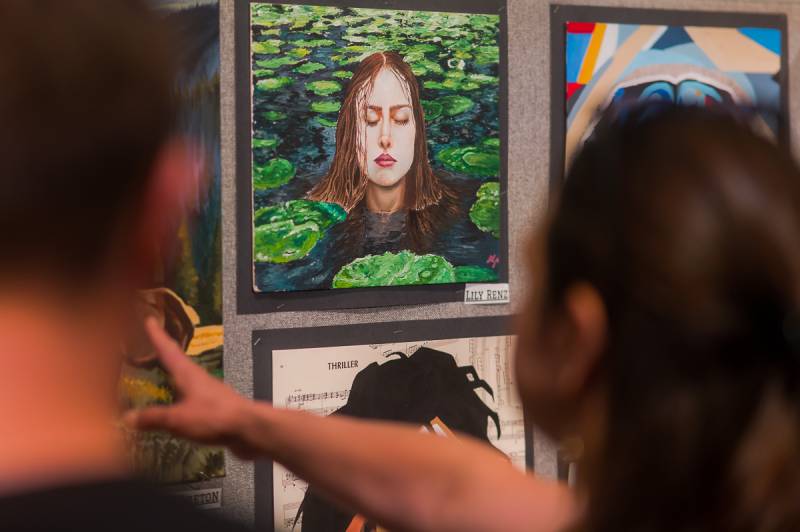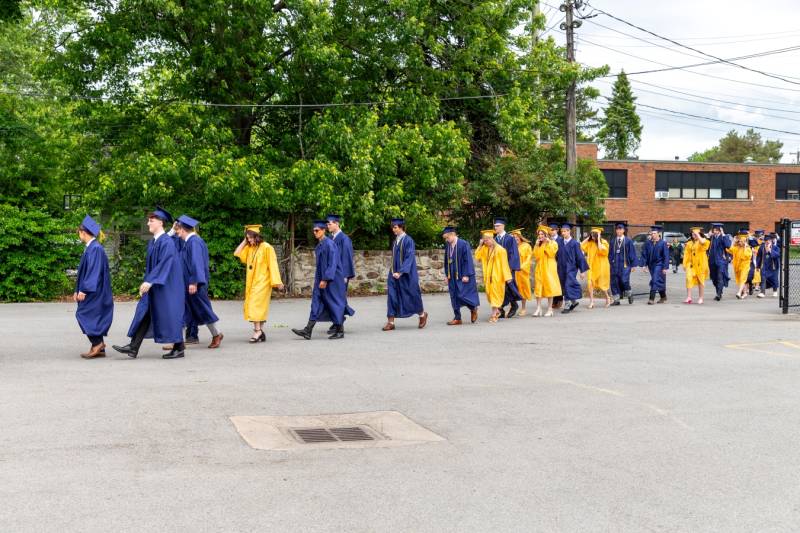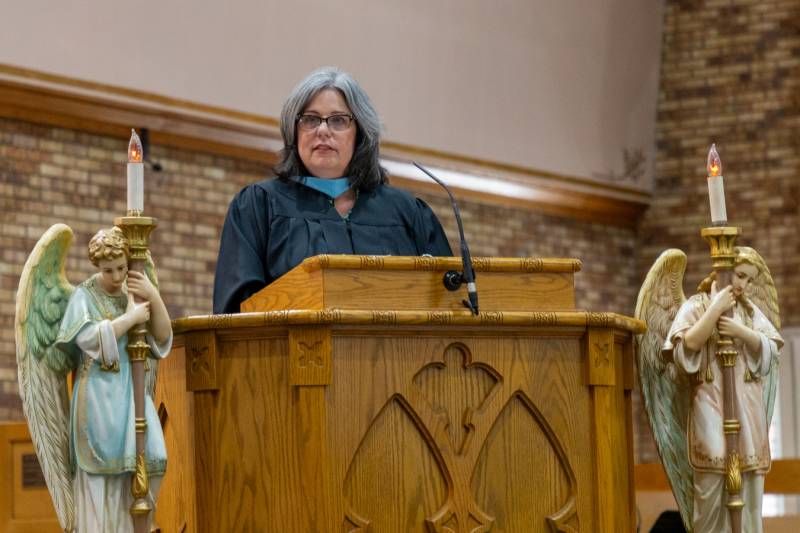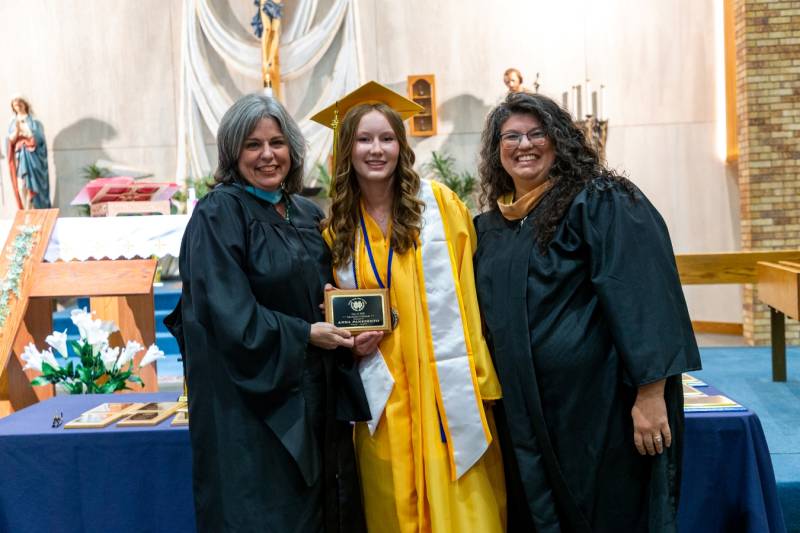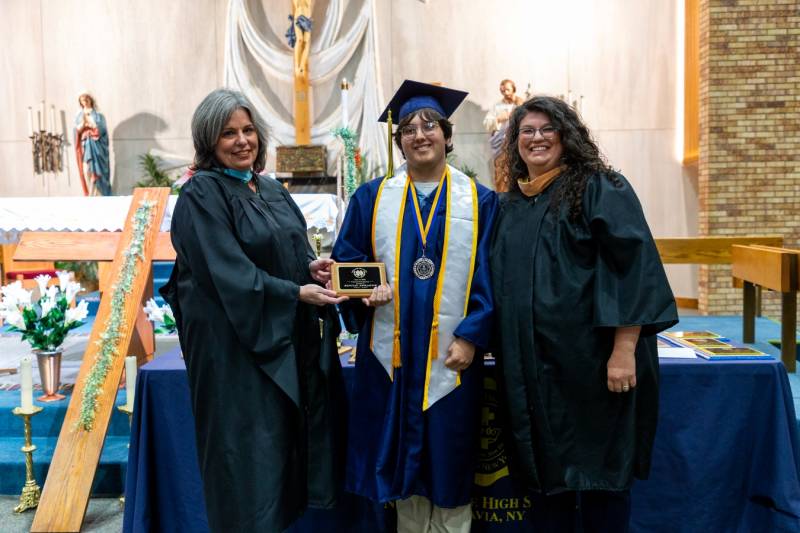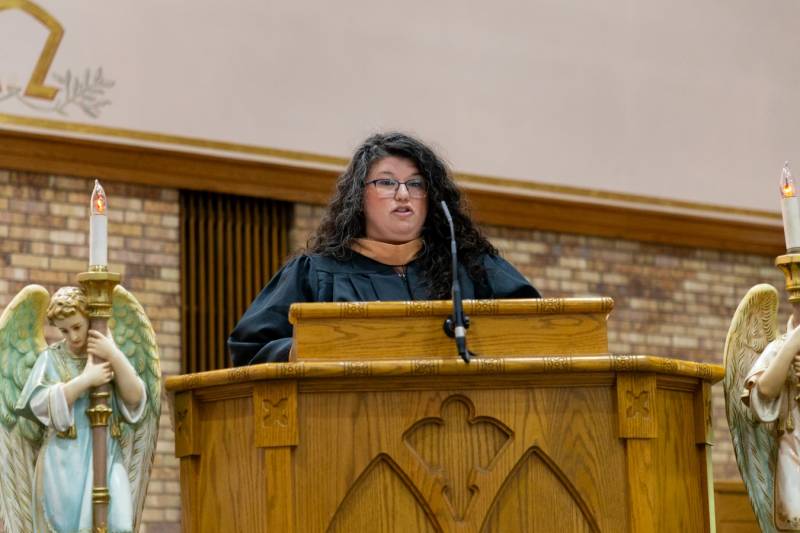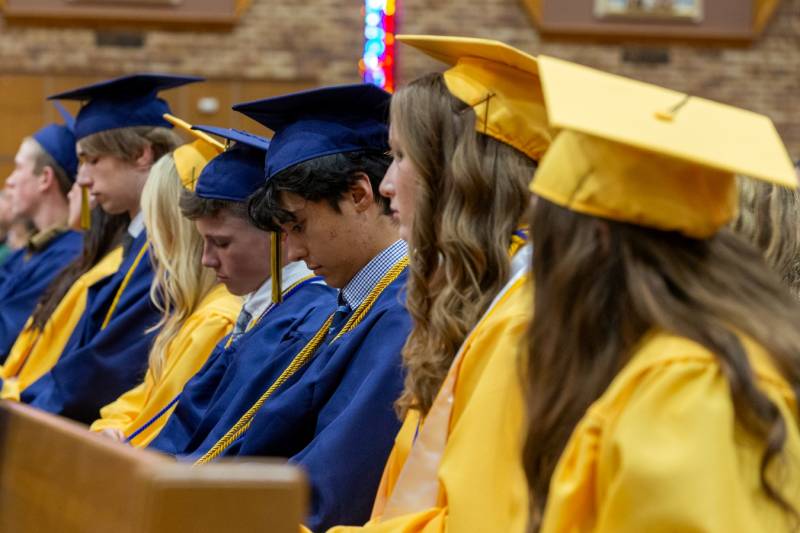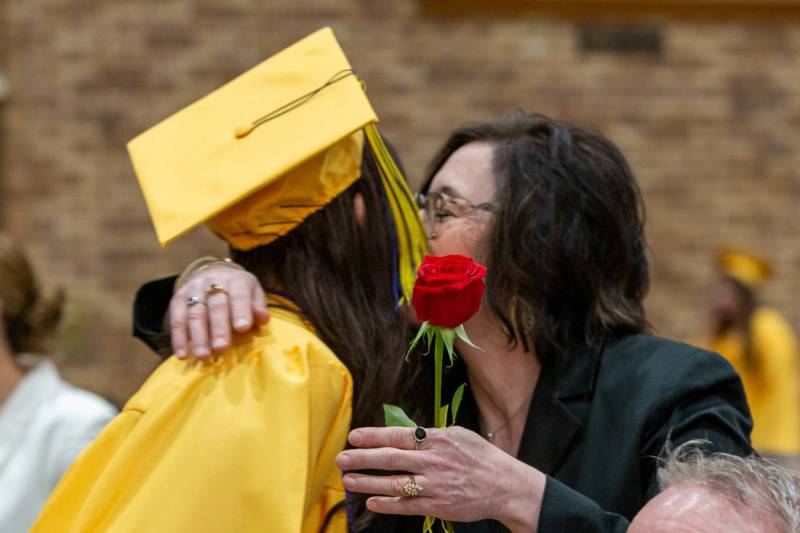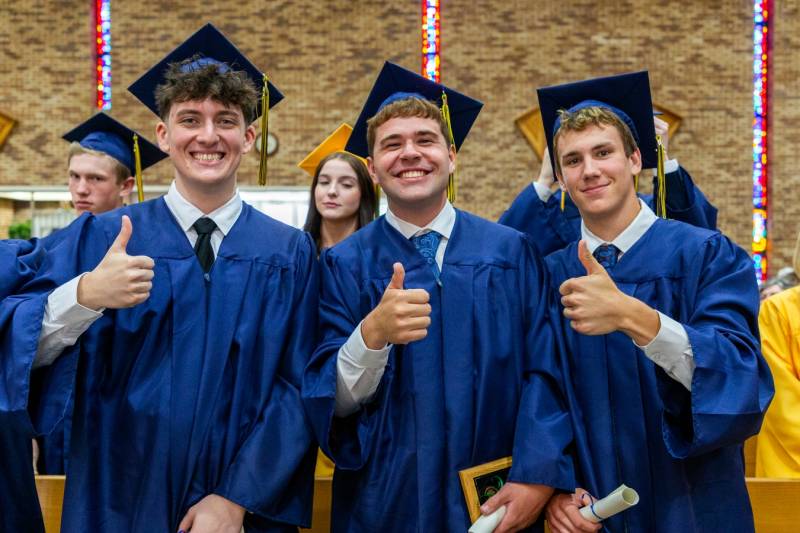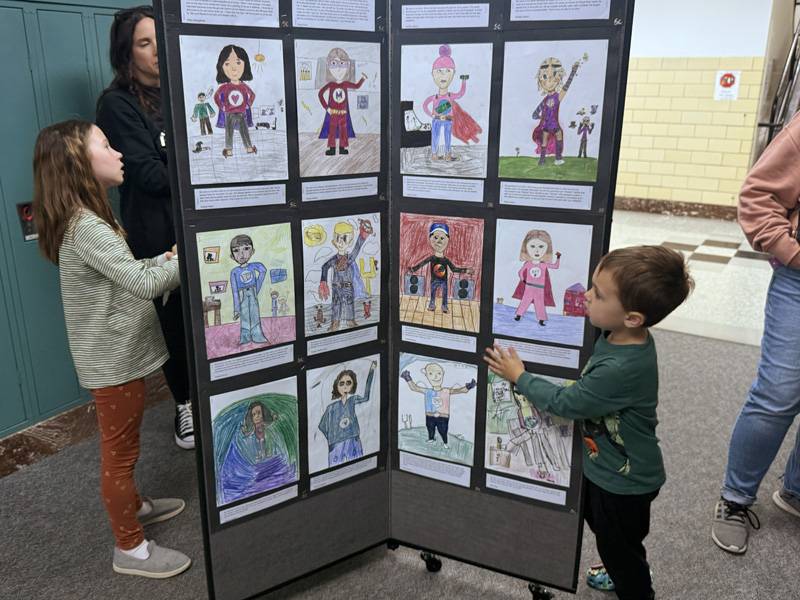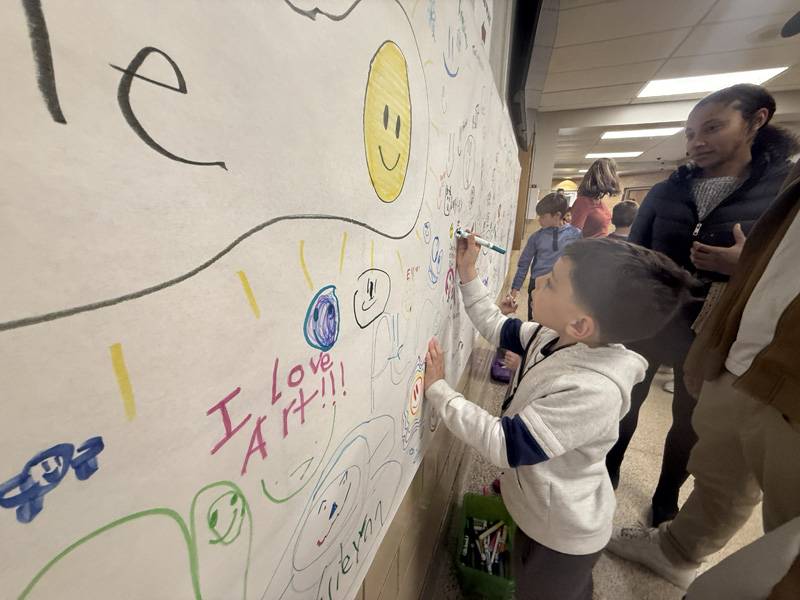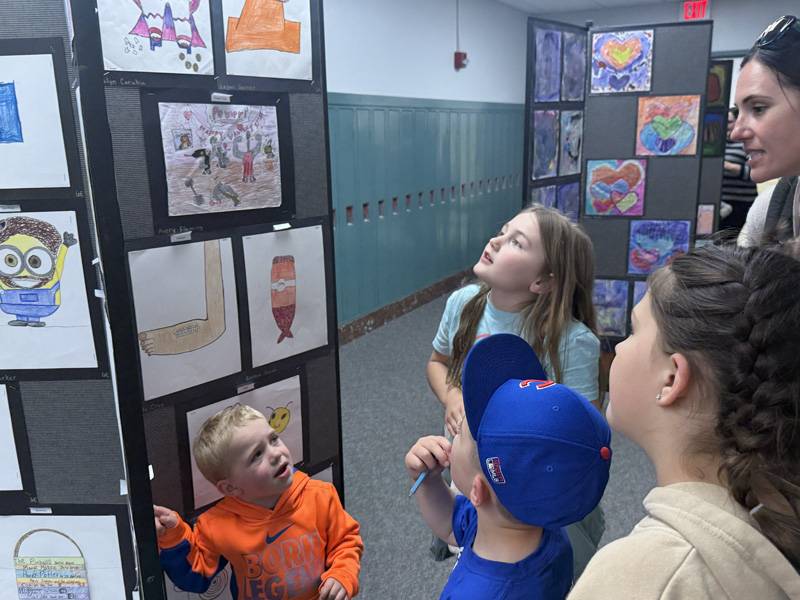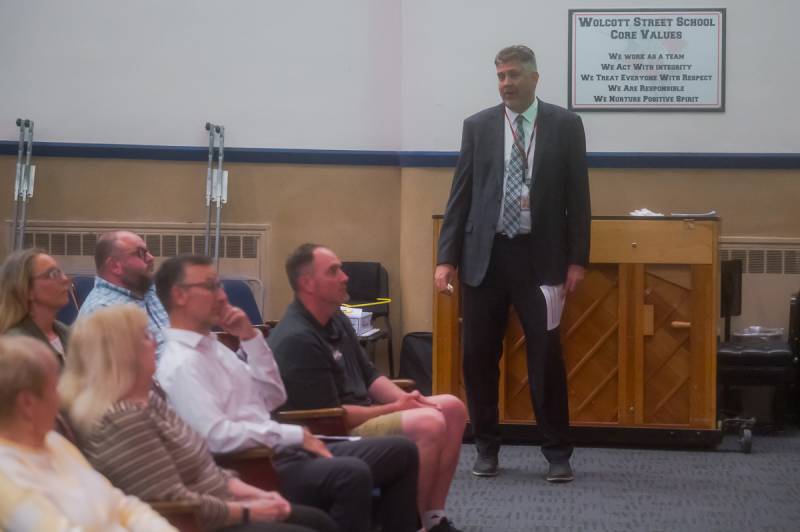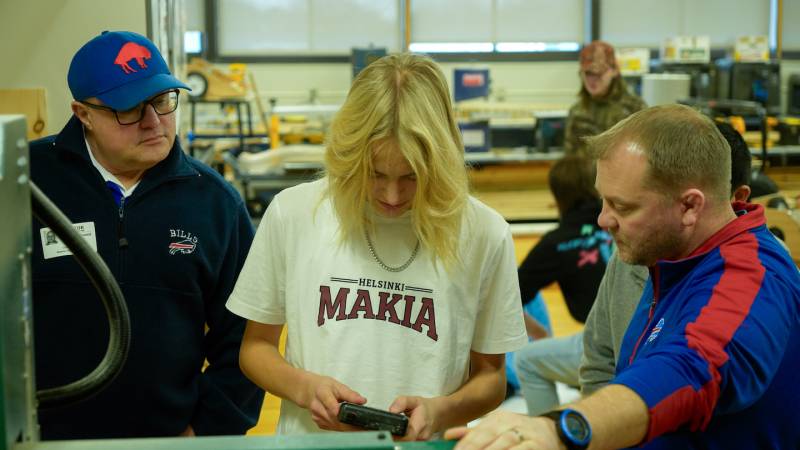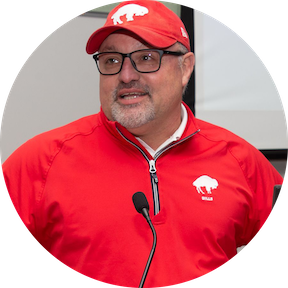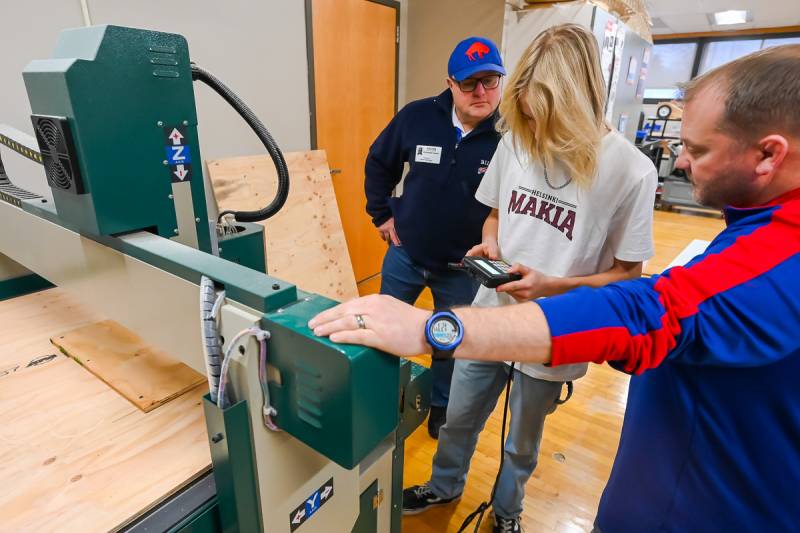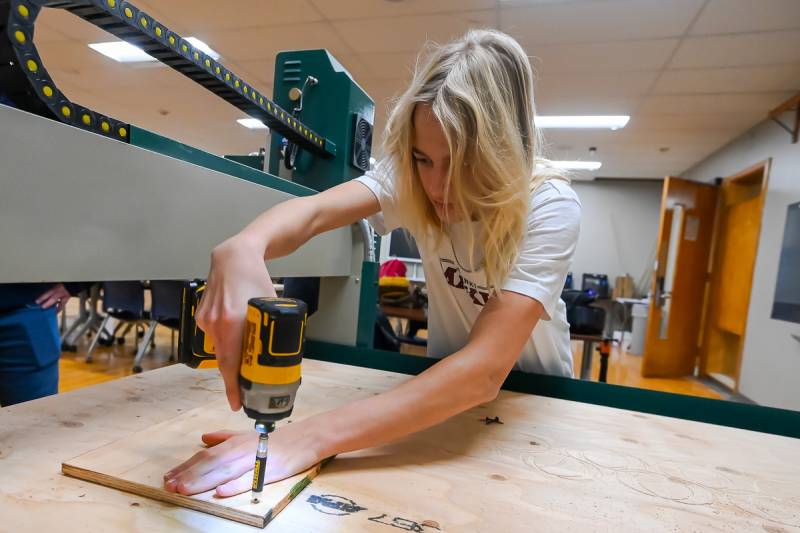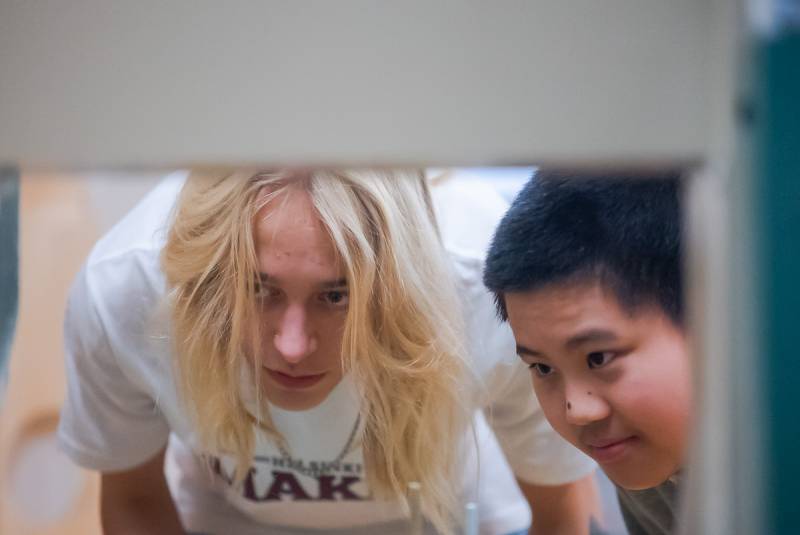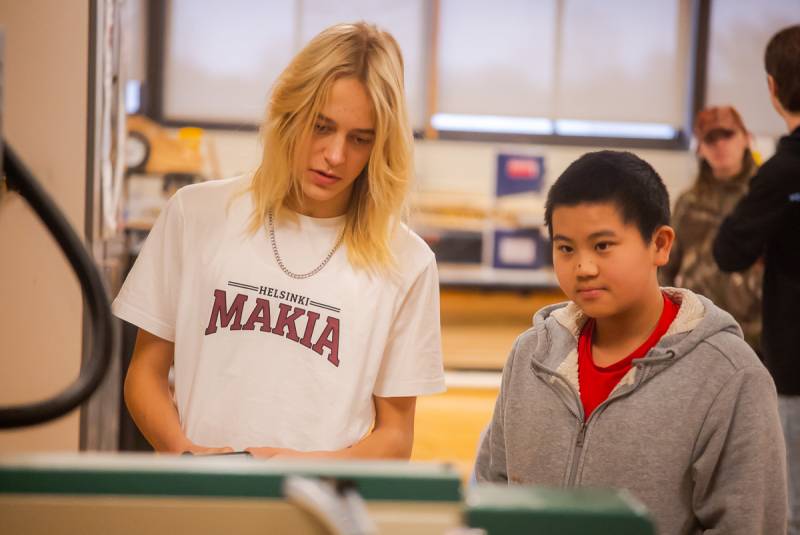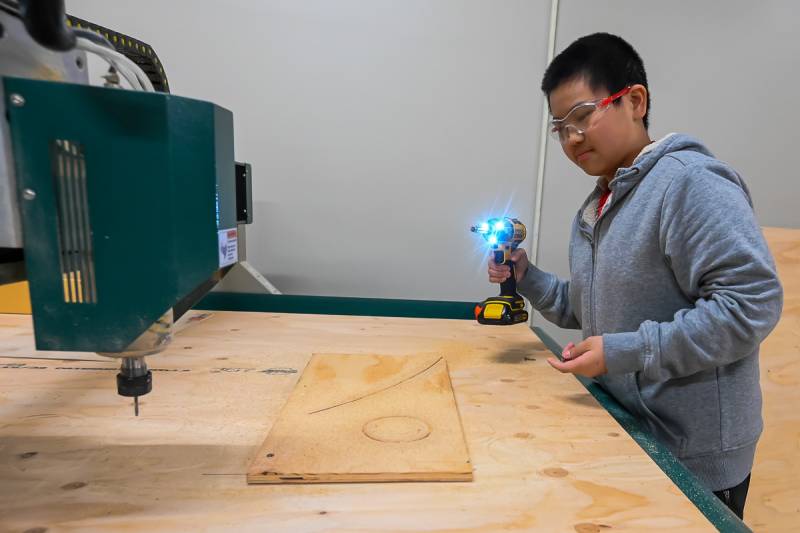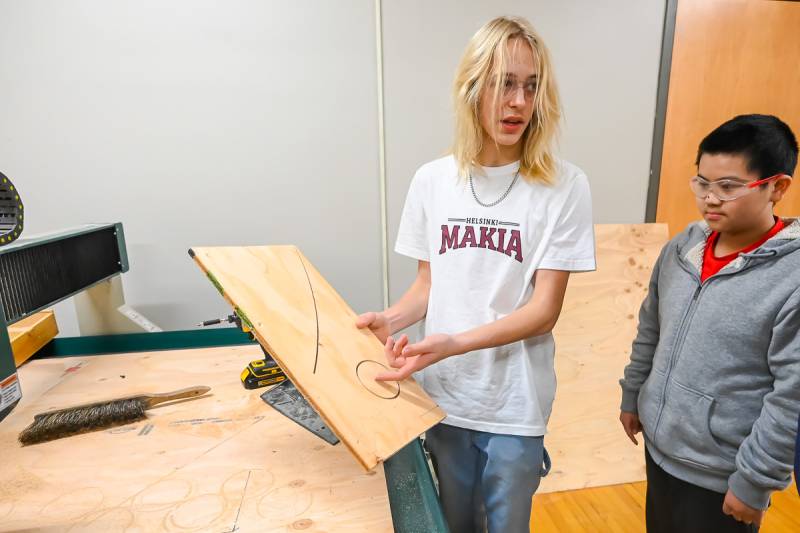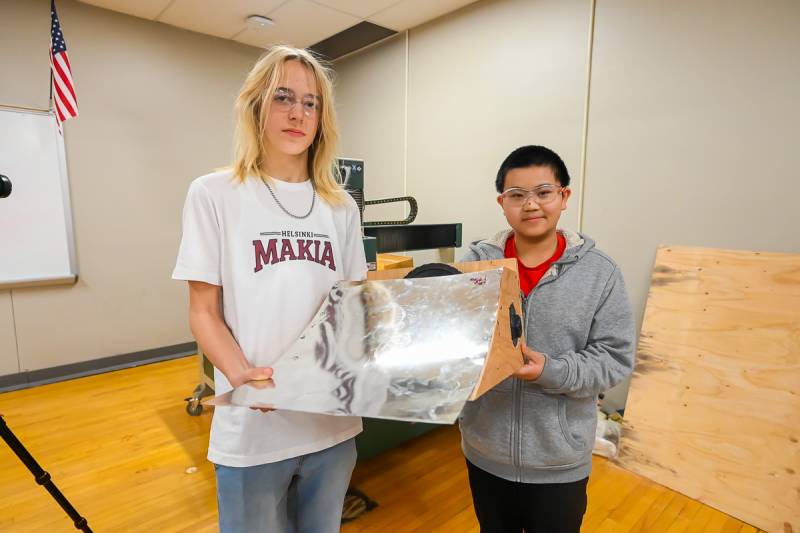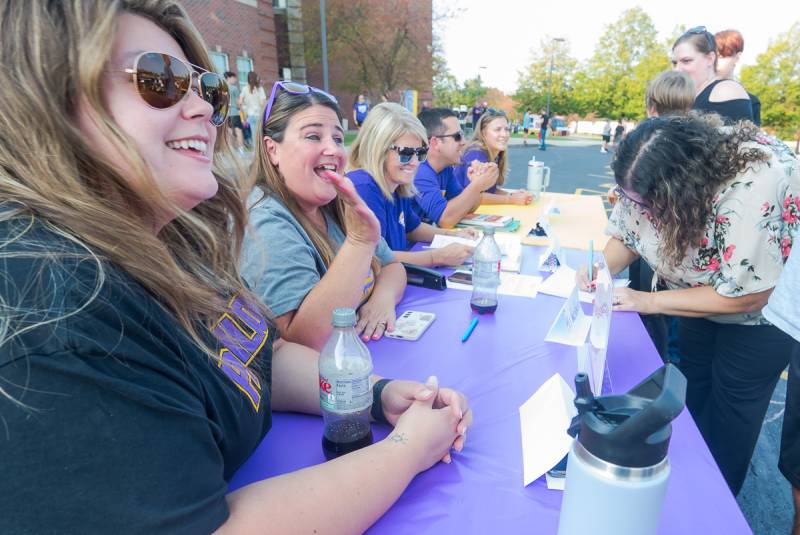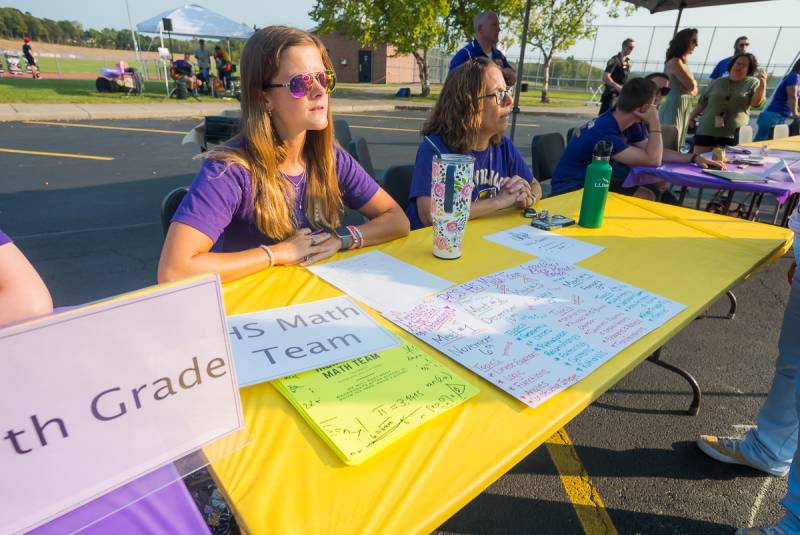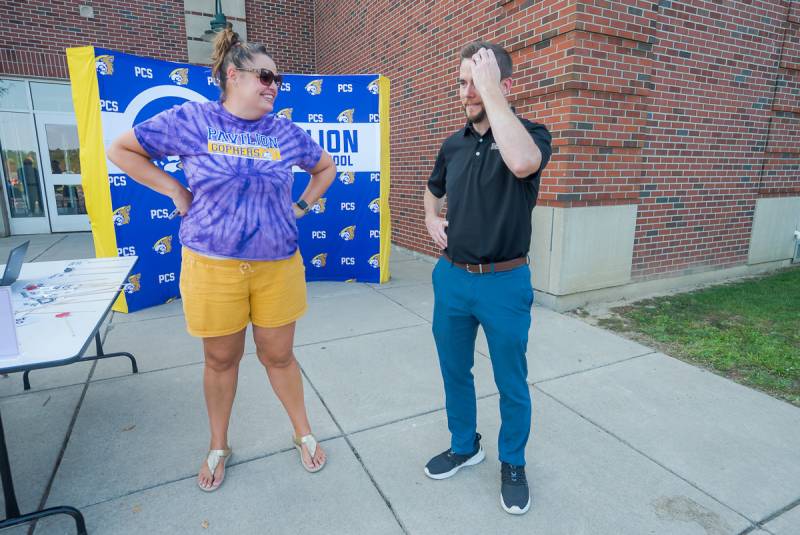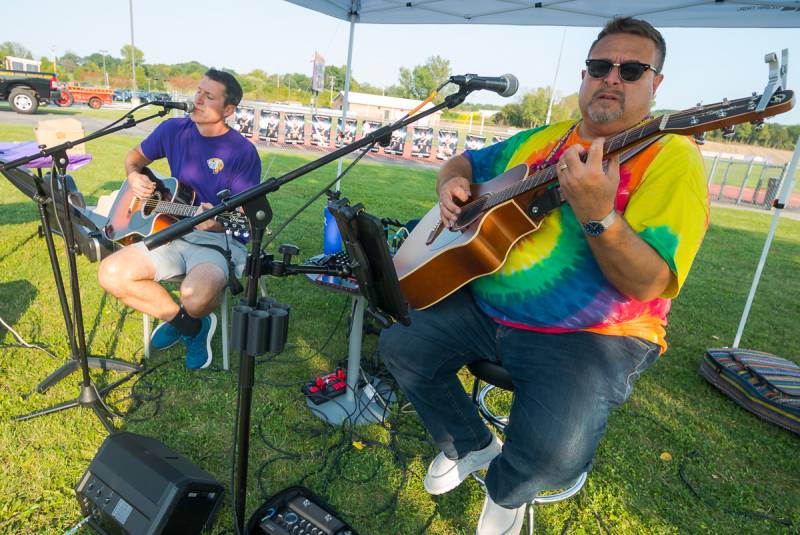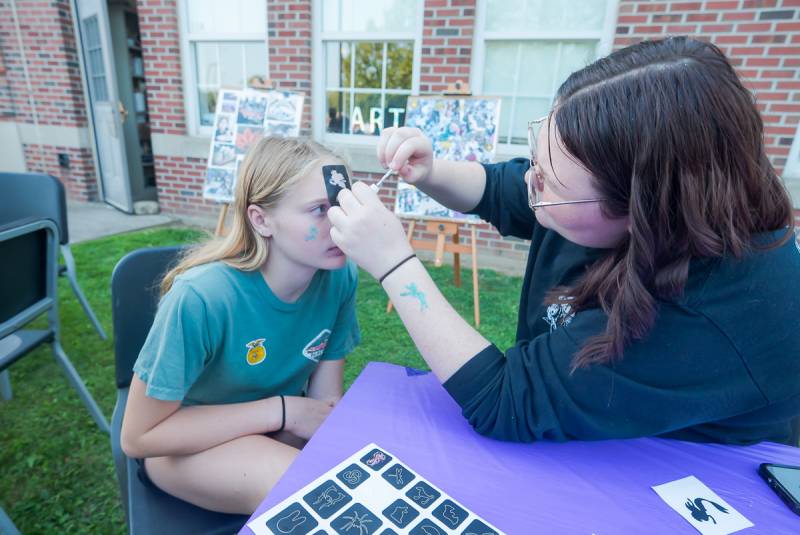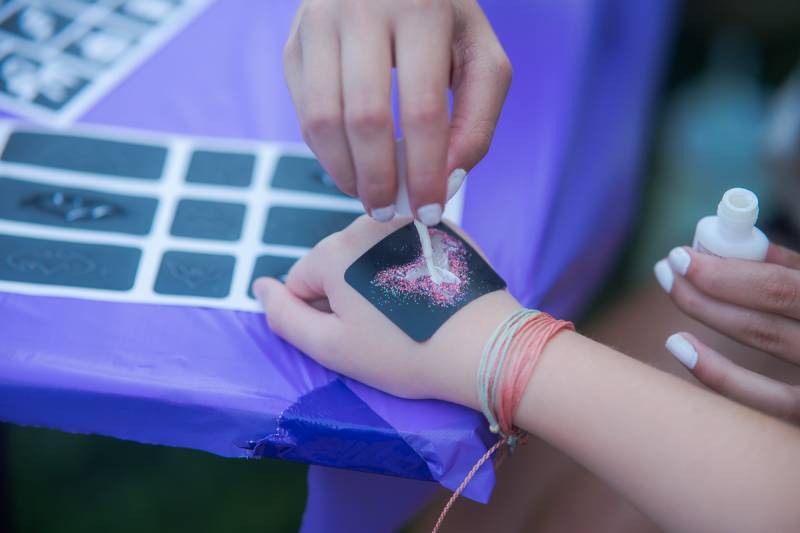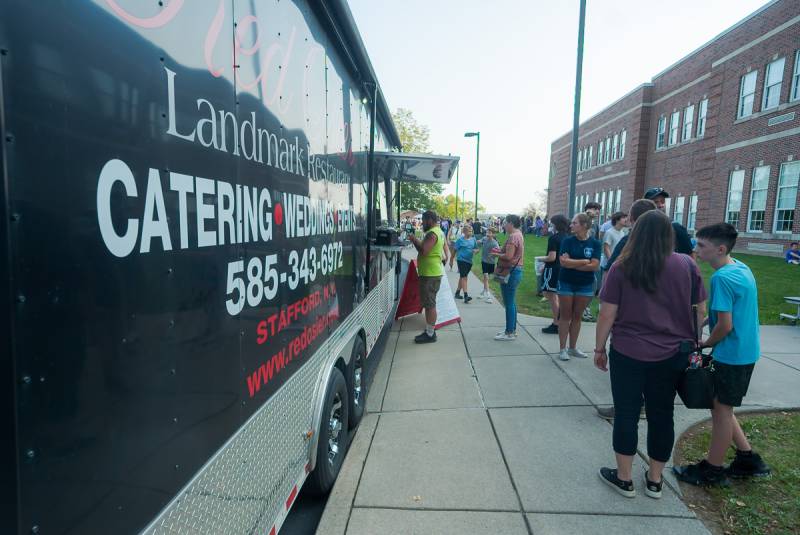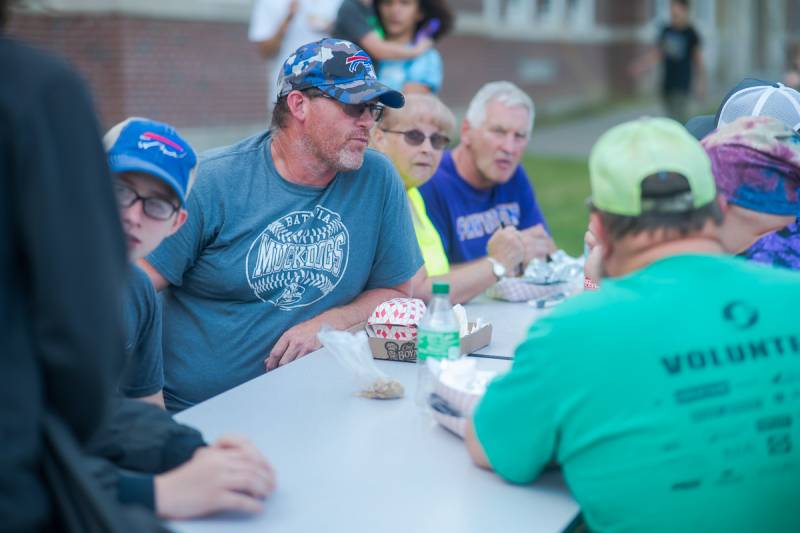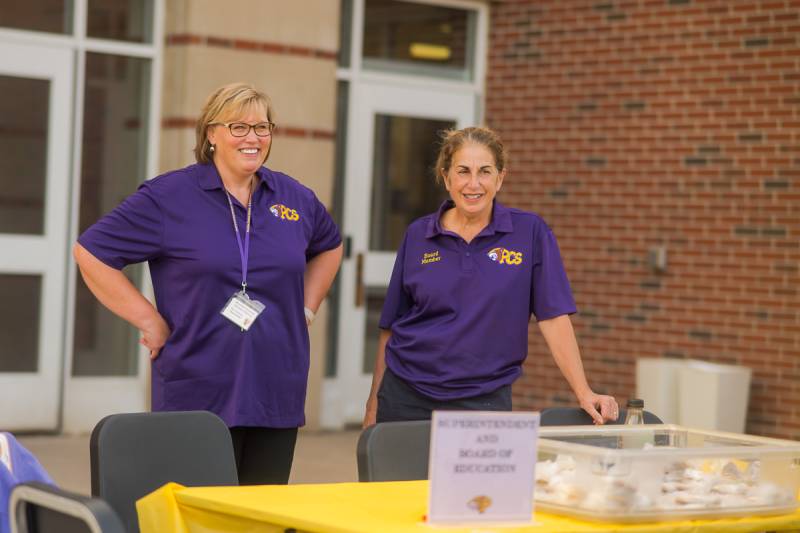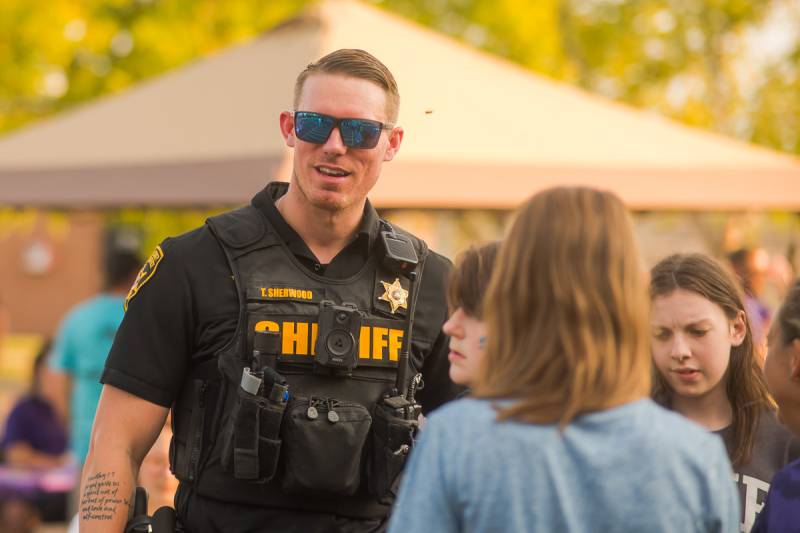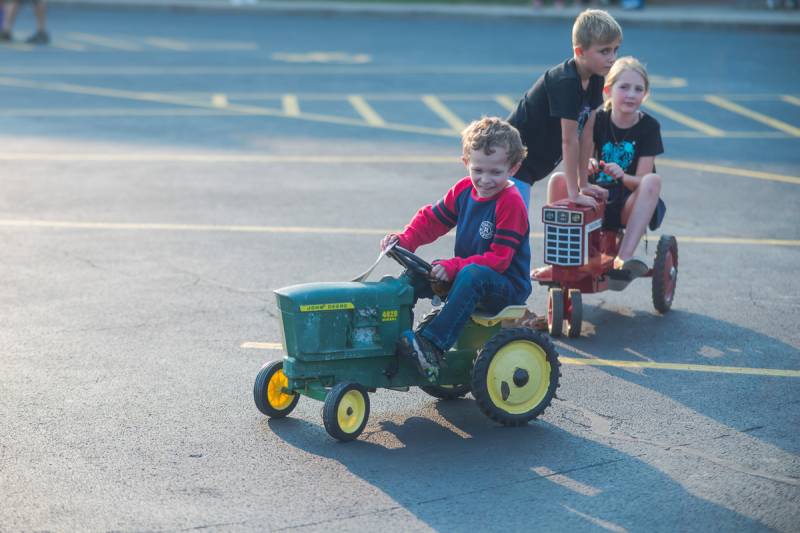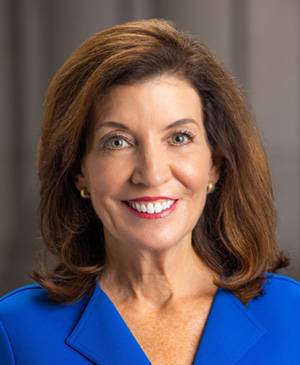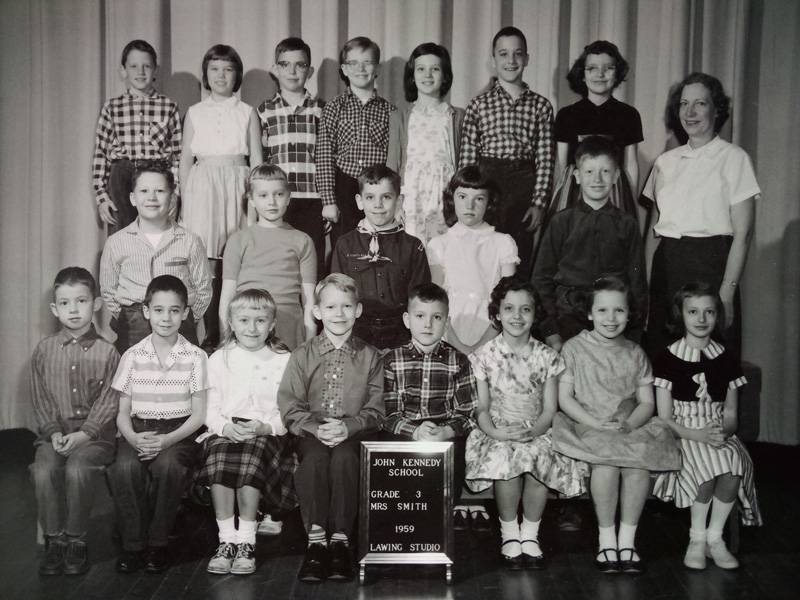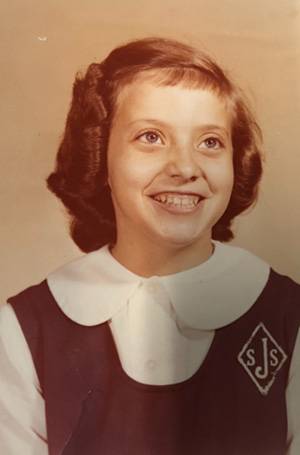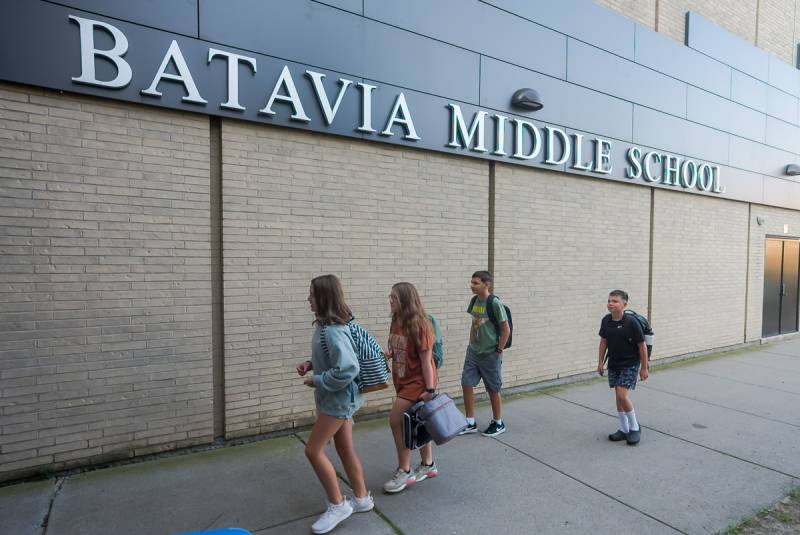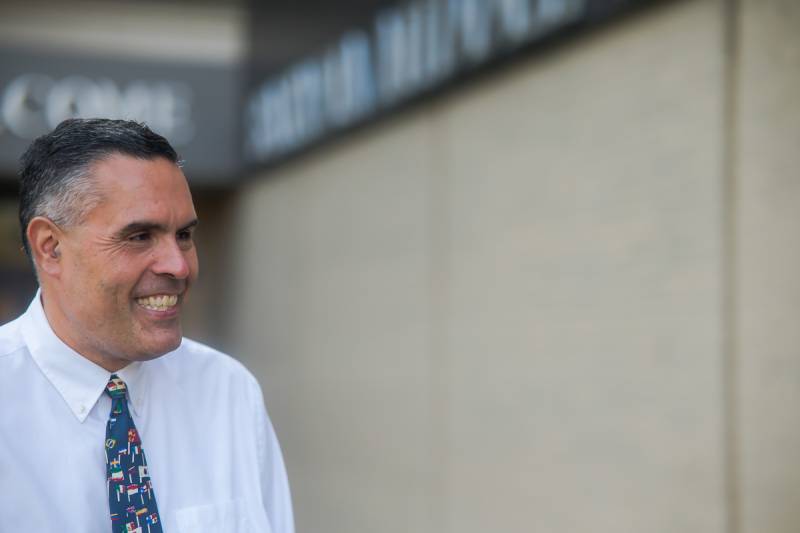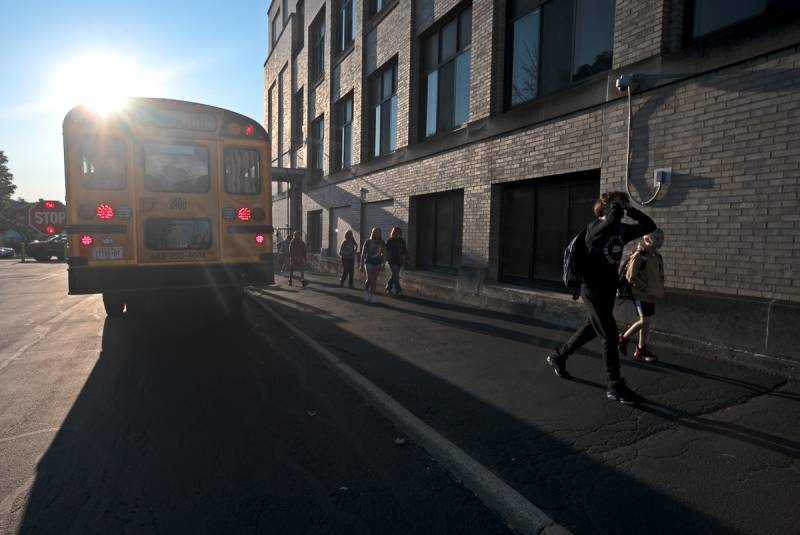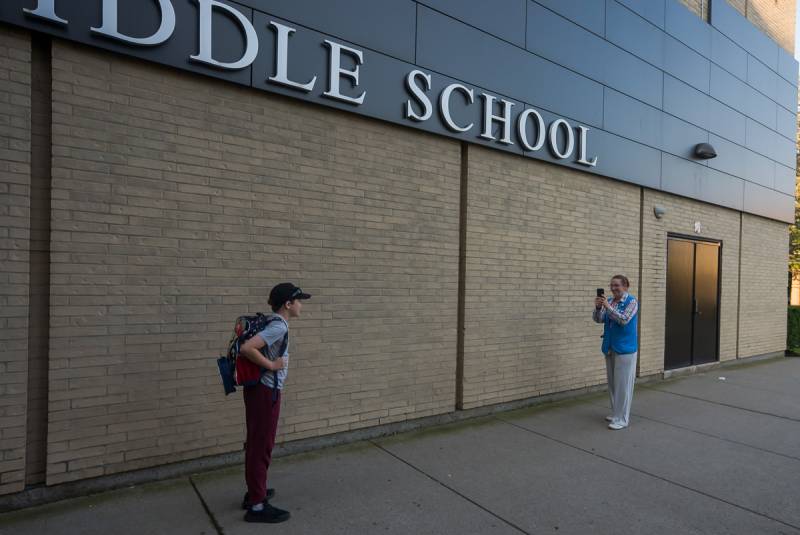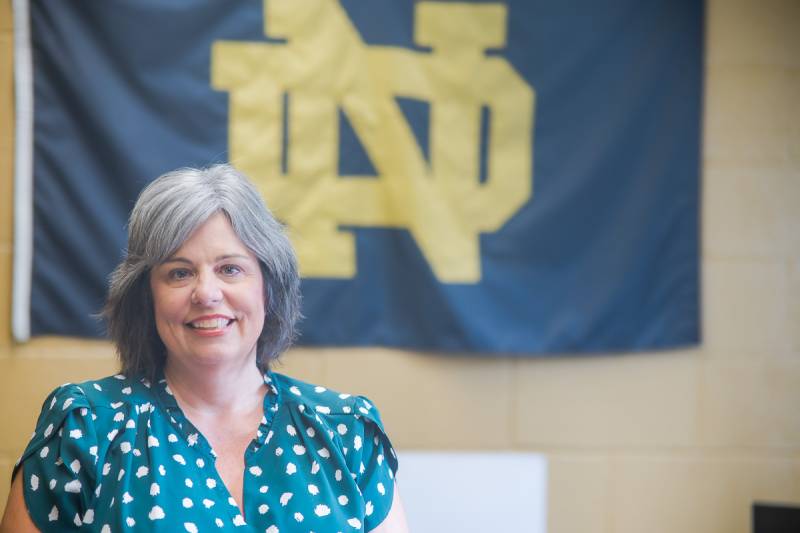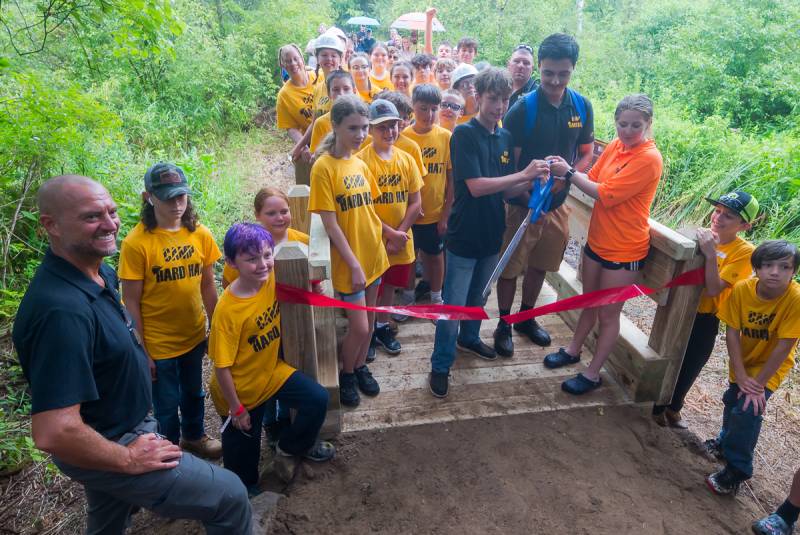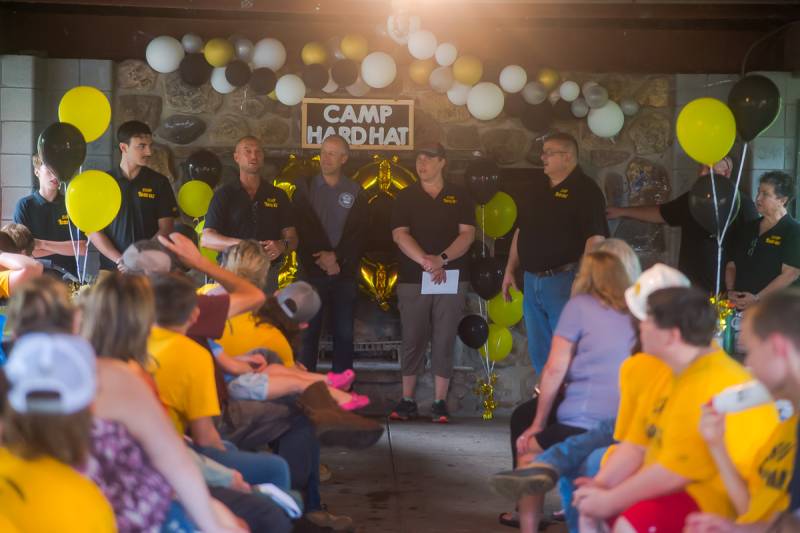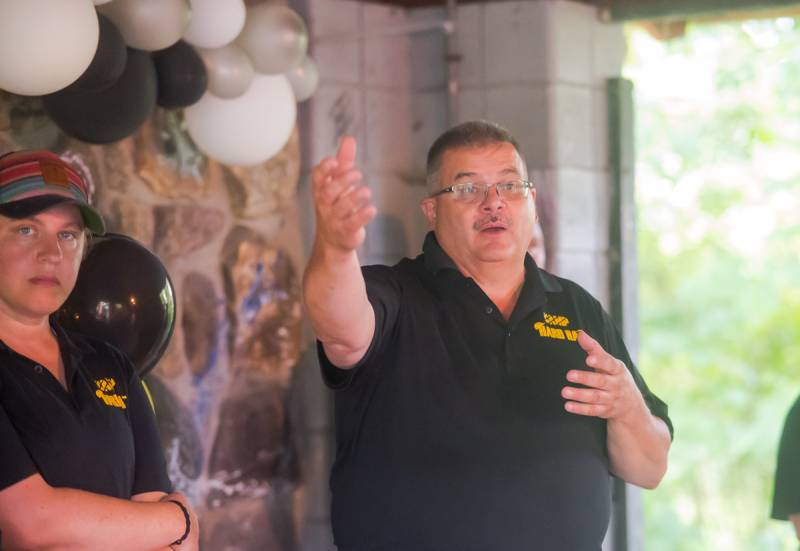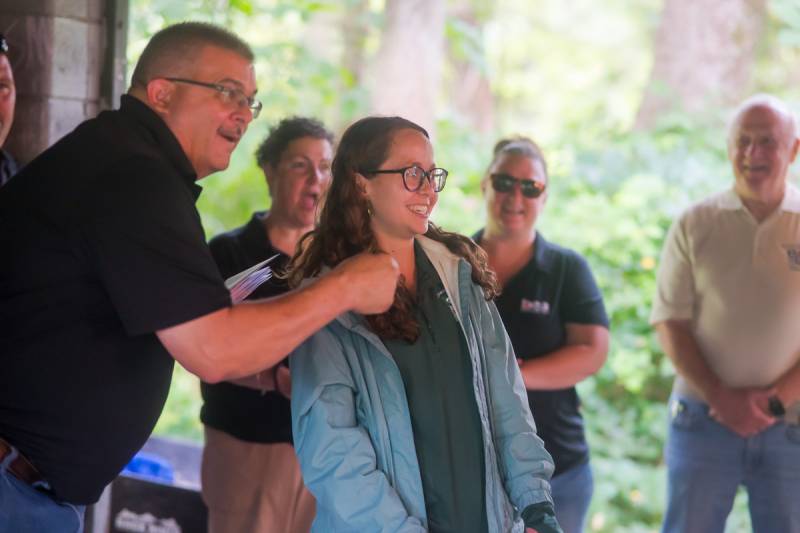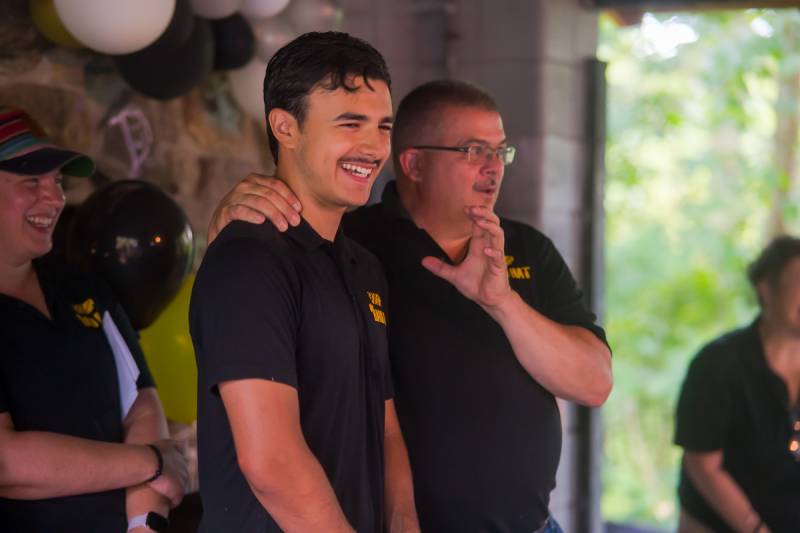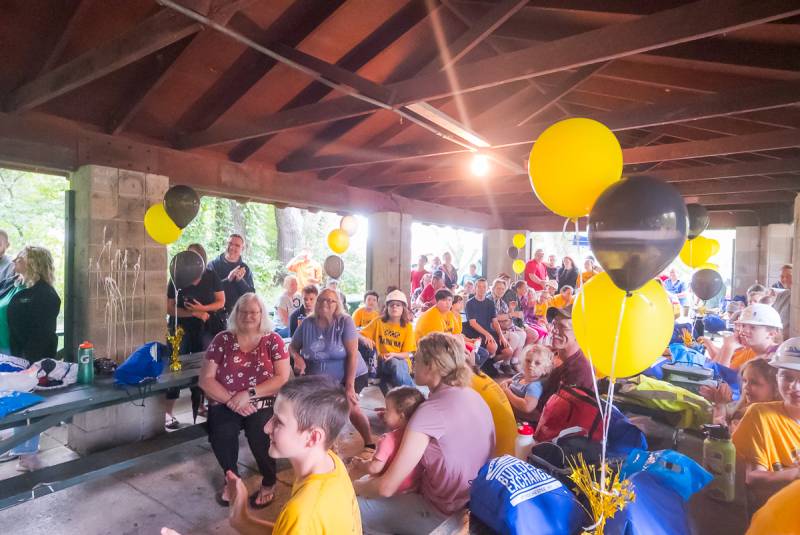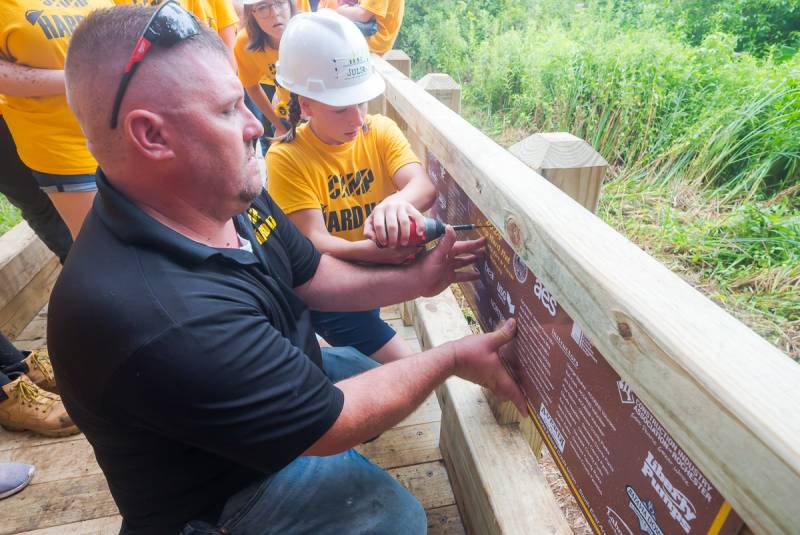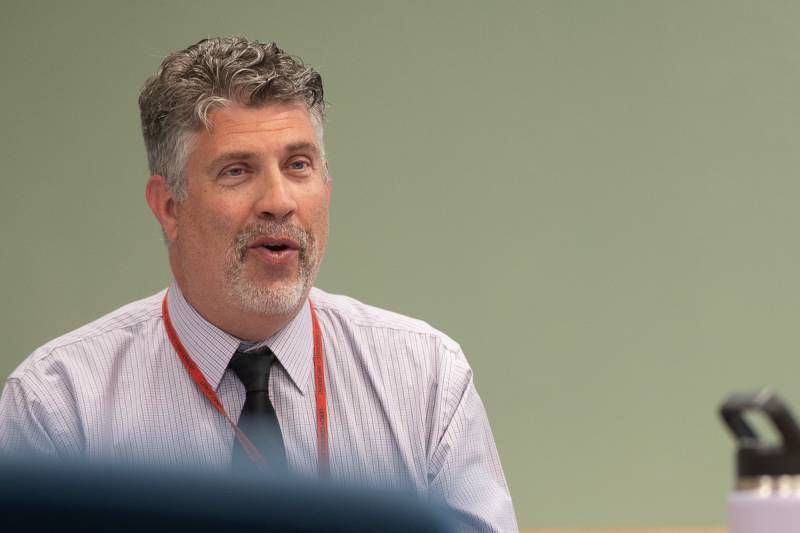Oakfield-Alabama school district faces second budget vote amid tax cap challenges
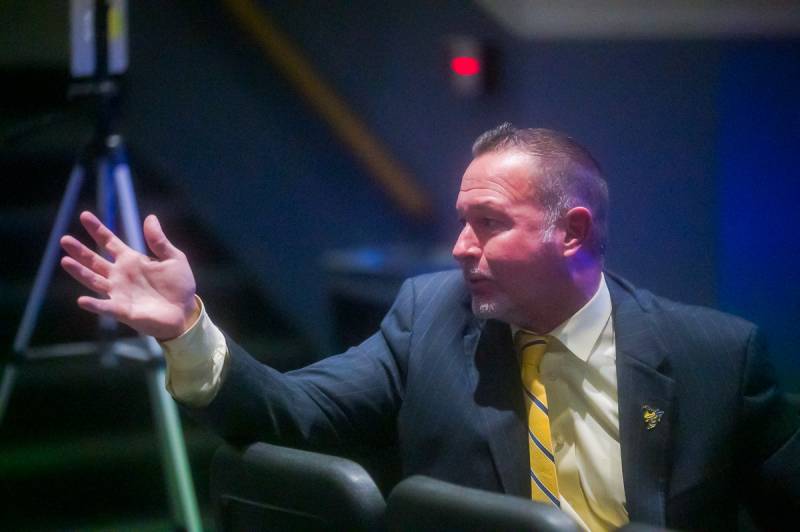
Photo by Howard Owens
The Oakfield-Alabama Central School District is facing a unique challenge—convincing voters to pass a 2025-26 school budget that requires a tax cap override.
District officials say a tax cap override, without difficult spending cuts, is unavoidable due to the ongoing economic development in the community.
To avoid a tax cap override, the district would need to reduce the tax levy under the state’s tax complicated cap formula, which requires school districts to account for Payments in Lieu of Taxes (PILOTs) from new business projects under development in the community.
The tax cap levy mark under the formula for the district this budget year is -2.61%.
The proposed budget is $25,555,345, representing a $533,000 increase from the current year’s adopted budget. The proposed levy is $5,839,050, or $142,416 over the current levy.
The budget vote on May 21 failed, and board members shared during Monday night’s budget hearing that feedback from district voters indicated there was confusion over spending, the need for the override, school bus expenses, and capital project spending.
The district is presenting the same budget proposal to voters, which some residents find confusing, according to a couple of speakers.
There were about 20 residents, plus board members, in the audience for the hearing, which Board President Justin Staebell said was the biggest turnout he's seen for a school district budget meeting.
Laura Kowalczyk, business administrator, explained the board’s reasoning, “There was a lot of communication between the residents, between the board, and between the staff, to answer a lot of questions and discuss these things. And the conclusion was that we should, with additional information and having answered questions, we should present the same budget to the voters the second time, with clarifications being made.”
The budget includes the purchase of three diesel buses—a full-size bus, a small bus with a wheelchair lift, and another small bus—following the district’s replacement cycle.
“These are all diesel buses, and these will be aided at 90% over the next five years,” Kowalczyk said.
The district is also preparing for the state’s coming electric bus mandate.
Alabama resident Jessica Gang had several questions during the meeting. She wanted to understand better what was driving the board's decision to come back with essentially the same budget as the one that had been voted down.
"I do want my kids to have a wonderful education, but I don't understand how we got here," Gang said. "It felt like you guys said you're going to have to keep increasing taxes for the foreseeable future, so I guess I just wanted to know there are some changes on the horizon," Gang said.
Board member Malorie Benjamin empathized with Gang.
“I agree. I don’t want my taxes to go up. I don’t want to pay anymore, but at the end of the day, I also like all the options our kids are afforded here as a community, we have a lot of things that most rural school districts don’t have and a lot of opportunities for kids to be involved, and I don’t want to see any of those go away,” Benjamin said.
At the heart of the district's tax levy challenge is the influx of projects coming into WNY STAMP, particularly this year's projects, such as Edward's Vacuum, and how these projects complicate the state’s tax cap formula.
“The reason that our tax cap is negative this going into next school year is that we have a PILOT payment from them that is coming on our rolls," said Superintendent John Fisgus. "So if you have that tax formula, you know formula here, you’ll see that the prior year tax levy number is always the first number that goes into this formula, and then there’s a growth factor that’s set. And then the next number is you add on the prior year's PILOT payments. So that’s what we have this year.”
Fisgus also addressed alternatives to PILOTs, such as educational contribution agreements (ECAs), which provide revenue that does not count against the tax levy and offer more flexibility in budgeting.
“One of the things, too, that school districts are getting into are these ECAs, these educational contribution agreements, instead of PILOT payments," he said. "When PILOT payments come on for school districts, it does have a negative tax impact on your tax levy. So, receiving that money really gives us more freedom to use it for what we need it for."
The district aims to negotiate Economic Development Agreements (ECAs) with companies relocating to the area, such as a proposed data center for WNY STAMP in the town of Alabama.
If the budget does not receive at least 60 percent approval, the district must adopt a contingency budget. Kowalczyk said,
“If this proposed budget doesn’t pass, the board will adopt a contingent budget, and there are parameters that go into what contingent expenses are and are not. So, all non-contingent expenses will have to be removed from this budget. So that includes equipment, our bus purchases, our transfer to capital, and our capital outlay expense. The district can also not allow the free use of facilities, so we cannot incur any costs for outside organizations to use the facilities.”
Fisgus said the district is proud to provide its facilities for community groups to use during non-school hours, and that use has increased over the years. If that budget fails, there will be a radical change for the community.
“It seems like this place is now open -- we’re getting 24/7 coverage, which includes 12–14 hours on a Saturday and 12–14 hours on a Sunday," Fisgus said. Obviously, we need to staff, to have people here. We just can’t incur those costs when you know our custodial or maintenance crew are working overtime and those additional hours.”
Community groups would likely be required, in that case, to pay a user fee, Fisgus said.
"We will have to go back and review our facilities use fee. I want to say they’re $50 an hour," Fisgus said. "We’re going to have to go back and make sure that we are not incurring any costs moving forward when an outside organization uses our facilities.”
Salaries and benefits account for approximately 63 percent of the budget, with other categories including debt service, BOCES, shared services, and capital outlay. The district plans to use $738,000 of appropriated fund balance and $470,470 of reserves.
Fisgus emphasized that there is no relationship at all between the proposed budget and the capital improvement project approved by voters last year, except for the planned transfer to capital.
“This capital project is already taken care of. It’s already been approved," Fisgus said. "But this work is going to continue and be completed by the end of next fall. Whether this budget is approved or not. It’s really two separate buckets. People get confused a little bit about this project being in the budget.”
In order to avoid spending peaks and valleys, Fisgus said it is important to keep finances level year to year, especially as it relates to debt service.
“As far as the funding goes, we have debt service falling off from the last project, and we have this transfer to capital coming on with this project, which is part of our budget," Fisgus said. "What we’re doing is we’re keeping it a flat line. So, you don’t want to see the ups and downs, the ebbs and flows, of debt service falling off and new expenses. So it’s very systematic in that we keep everything at a level pace.”
The district’s history shows that proposed tax levy increases have typically stayed below the tax cap calculation in recent years. The board emphasized the importance of maintaining the budget to ensure long-term sustainability and avoid future financial issues.
“So cutting that stuff out gets you through this year, keeps you at zero percent, but next year you’re going to have to deal with it—you can’t just keep pushing off the buses," Staebell said. "Eventually, you’ve got to replace them. If you don’t start to get the additional revenue, then you have to make more of the long-term cuts to make the budget work. That’s where we’re looking at the long term—what can we do to trim and make those lasting cuts that are sustainable in the district? The additional revenue in this budget is what helps keep things going as we continue to work through and figure out what we can cut long term.”
Benjamin said the board received a good deal of useful feedback from community members in a survey the district took after the budget vote failed, and that factored into how the board approached representing the budget to voters.
“I think the reason for part of why we made that decision collectively was related to the fact that we heard the feedback we took into account," Benjamin said. "It’s not perfect, right? Because we didn’t hear from every single voter in the community, but it was some level of information. What we found was that there was a lot of misinformation about this particular budget. So I think what we were trying to focus on was whether it was an educational failure on our part to give people the information so that they can make an informed decision."
The survey will help inform the board going forward, she said.
"I think there’s a lot in that survey that we learned that we’re trying to make action on at this point in time, but none of that was things we could do in a week’s time to actually make an impact the longer term things that we need to address, and I think we’re all committed to actively taking action on those things,” Benjamin said.
Board member Maria Thompson said the board has put a lot of time and thought into the budget, and the community has been in constant communication, providing them with feedback to consider.
“We have put in a considerable amount of time here and on the weekends," Thompson said. "I was at a tournament in Olean, coaching my daughter’s softball team. I’m on third base coaching, and I’m texting people. They’re asking questions. So I mean, again, maybe it’s just, you know, lip service at this point, but I promise you, we have heard and we it’s not going to stop on June 17, at 8:01 p.m., this is something that we are going to be working diligently towards, not just for this budget, but for future budgets as well. We’ve got a lot of feedback, and we appreciate the community for coming forward and doing that.”
The budget revote is scheduled for Tuesday, June 17, from 11 a.m. to 8 p.m. in the Middle High Community Room.


